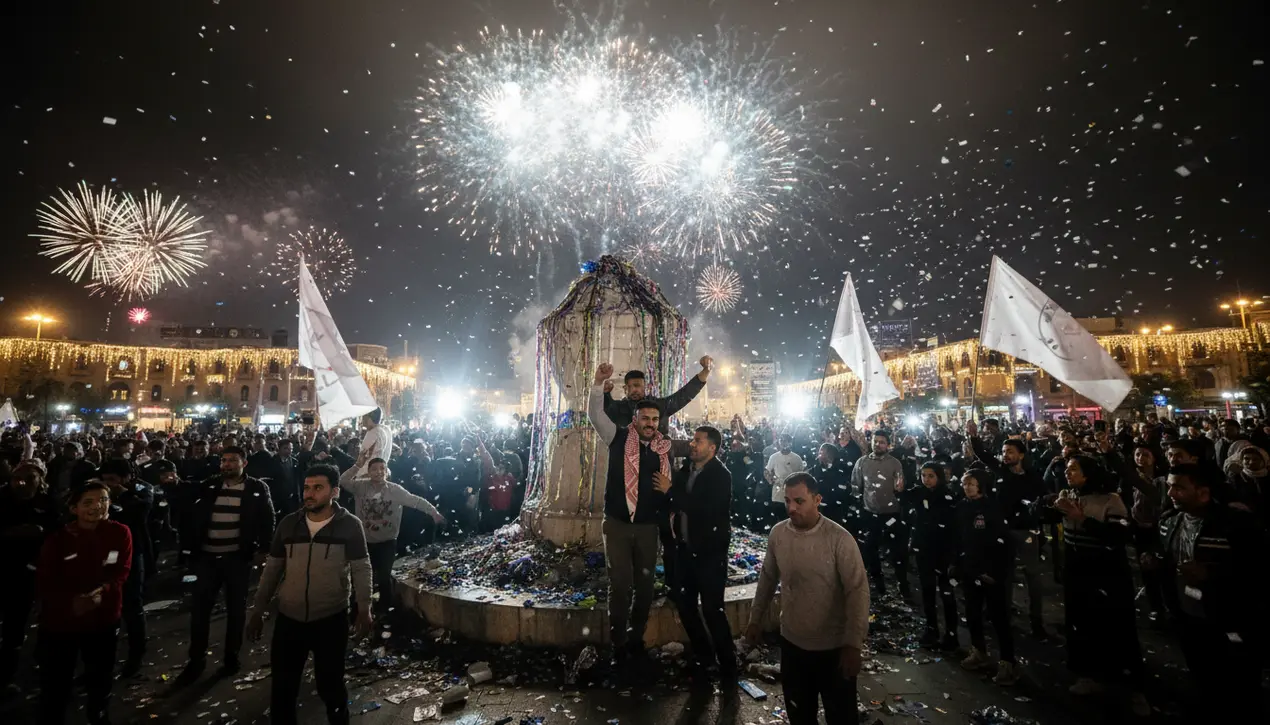
PoliticselectionsParliamentary Elections
Iraqi PM Sudani Claims Election Victory After Early Results.
RO
Robert Hayes
2 hours ago7 min read
Incumbent Prime Minister Mohammed Shia al-Sudani has claimed victory for his coalition following Iraq’s general election, with preliminary results indicating a decisive lead—a development that signals not just a political win but a critical juncture for a nation perpetually navigating the treacherous waters of post-invasion governance. The scene at Tahrir Square in Baghdad, where supporters erupted in celebratory fireworks and music late into the evening, evoked a familiar spectacle of democratic fervor, yet beneath the surface lies a complex tapestry of factional allegiances and geopolitical pressures that have defined Iraq’s fragile democracy since 2003.Sudani, vying for a second term, framed this outcome in a televised address as a triumph for all Iraqis, a rhetorical move reminiscent of historical leaders consolidating power amid fractured mandates; however, analysts note that his State Administration Coalition, which includes powerful Shiite blocs, still faces the arduous task of forming a government in a parliament historically paralyzed by sectarian bargaining. The preliminary results, while favoring Sudani’s alliance, also reveal lingering challenges: voter turnout, estimated at around 36%, underscores widespread disillusionment in a populace weary of corruption and inadequate public services, echoing the 2019 protests that demanded systemic overhaul.This electoral process, observed by international monitors, unfolded against a backdrop of heightened regional tensions, including Iranian influence and U. S.military presence, factors that will inevitably shape Sudani’s next term as he balances domestic reforms with diplomatic tightropes. Historical parallels to Nouri al-Maliki’s contentious tenures come to mind, where early victories gave way to protracted instability, suggesting that Sudani’s claimed mandate must now translate into tangible progress on economic diversification and security—particularly in curbing militia power—to avoid repeating cycles of unrest.Expert commentary from Baghdad-based scholars highlights that while the coalition’s lead appears solid, backroom negotiations over key ministries could stretch for weeks, testing Sudani’s ability to unify a mosaic of Sunni, Kurdish, and independent lawmakers. The consequences of this election extend beyond Iraq’s borders, potentially recalibrating OPEC+ dynamics given the country’s oil-dependent economy, and influencing U.S. -Iran proxy dynamics in a region already rattled by conflicts in Gaza and Red Sea disruptions. In essence, Sudani’s victory speech marks not an endpoint, but the opening of a new chapter in Iraq’s democratic experiment—one where governance, not mere electoral arithmetic, will determine whether this result fosters stability or sows the seeds for future crises.
#Iraq
#Mohammed Shia al-Sudani
#election victory
#parliamentary elections
#coalition
#Tahrir Square
#featured
Stay Informed. Act Smarter.
Get weekly highlights, major headlines, and expert insights — then put your knowledge to work in our live prediction markets.
Related News
Comments
Loading comments...
© 2025 Outpoll Service LTD. All rights reserved.














